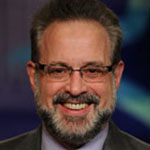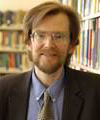Putting HIV Science into Practice: What Public Health Educators Must Do
Topics

Since the very first international AIDS meeting took place in Atlanta in 1985, these gatherings have provided an important venue for exploring the science surrounding the global AIDS epidemic. What do we know about the virus? What steps can we take to prevent its spread and reach those who are most vulnerable to infection? How can we better care for persons who are living with HIV? Throughout its thirty one year history, the international AIDS meeting has convened experts from around the globe to share information about their successes, their challenges and sometimes, their failures. Demographers, epidemiologists, basic scientists, virologists, immunologists, sociologists, ethnographers, psychologists, political scientists—the list of disciplines represented is stunning in its breadth. And at every one of these meetings, the science that’s presented has been put into a broader, real-world context by the large contingents of people living with HIV, their providers and other community advocates who participate in these exchanges with enthusiasm and insight.

The twenty-first international AIDS meeting that recently concluded in Durban is no exception. As reported on this site throughout the conference, scientific advances move us ever closer toward an effective vaccine to prevent infection and a functional cure for those currently living with HIV. Science takes center stage at the International AIDS Society (IAS) meetings because we recognize that the meaningful progress we’ve made against the HIV/AIDS epidemic has come about as a consequence of cumulative advances in knowledge. What is less obvious—although no less important—is what these scientific findings imply for those of us who are tasked with educating the current and future public health workforce. In other words, what skills do public health leaders, managers and workers need to ensure that those populations who can most benefit from these scientific advances are actually able to do so?
Although not a new concept, increasing attention is being paid to “implementation science,” namely, understanding how barriers, facilitators and other salient circumstances can influence the uptake and adoption of new scientific findings into policy and practice. For example, although the effectiveness of pre-exposure prophylaxis (PrEP) has been well-established, investigators are still striving to understand those day-to-day circumstances that can influence uptake and adherence (see Wheeler et al. “Correlates for levels of self-reported PrEP adherence among Black men who have sex with men in three US cities”: WEAC0104Exit Disclaimer. And making universal HIV testing and treatment available to rural South African communities—which is a good thing-- wasn’t sufficient, by itself, to ensure that infected persons who were eligible for treatment visited a clinic to access services (see Iwuji et al. “The impact of universal test and treat on HIV incidence in a rural South African population: ANRS 12249 TasP trial, 2012-2016”: FRAC0105LBExit Disclaimer.
What does it take to put HIV/AIDS science into practice? Thought leaders in public health education identify a number of core competencies that are critical for public health professionals to master at all levels of practice. And clearly, as any practitioner of public health can attest, multiple skills are necessary to ensure positive population health outcomes. But findings like those highlighted above speak to the burgeoning importance of improving and enhancing “systems thinking” skills in the public health workforce. This is especially relevant in our own nation where, increasingly, we recognize the critical importance of linking public health, clinical care, mental health and social service systems to better address complex health problems, like HIV, from a holistic perspective. We all recognize that factors like stable housing, meaningful employment and adequate nutrition can substantially affect health outcomes. But it’s much more challenging to assure that these critical services are made readily available to vulnerable populations who need them. Why? Because these services emanate from disparate and dynamic systems that typically have their own unique cultures, management structures, accountability standards, funding streams and advocacy bases.
Embracing the reality that systems of care and service must be connected, leveraged and modified to improve HIV health outcomes is consistent with our understanding that health consists of more than an undetectable viral load and that a whole array of social and environmental factors can influence health outcomes. This reality means that as public health educators, in addition to teaching fundamental concepts like epidemiology and health promotion, we must also develop those competencies that will enable our students to understand and modify complex, interactive systems so as to promote improved population health outcomes. Globally, this way of thinking is reflected in newer efforts aimed at strengthening health systems which tend to favor comprehensive, rather than single-issue, approaches to ensuring health. It is telling that the highly successful SEARCH Study (see Petersen et al. “SEARCH test and treat study in Uganda and Kenya exceed the UNAIDS 90-90-90 cascade target by achieving 81% population-level viral suppression after 2 years” WEAC0106LBExit Disclaimer employed a “multiple disease health campaign” approach that offered services, in addition to HIV testing, that ranged from diabetes screening to family planning and rapid malaria testing.
In short, educating the public health workforce so that they have the requisite skills to better define, assess, construct and navigate inter-organizational systems and processes can have important pay-offs when it comes to improving HIV health outcomes. This reality may not be as exciting or news-worthy as an HIV vaccine trial or a new drug treatment—but it is every bit as important in achieving an AIDS-free generation.